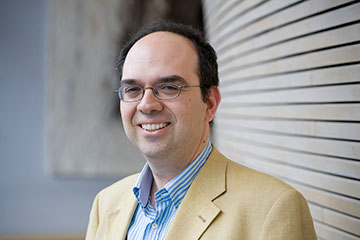Q&A with Professor George Skiadopoulos
George Skiadopoulos, Professor of Finance in the School of Economics and Finance at Queen Mary University of London interviewed.

- Please tell us about your interest in Economics and your area of teaching at Queen Mary
I am interested in the intersection of academic research in Finance with industry needs. I envisage academic research as a tool for providing solutions to practical problems of interest to firms, investors and policy makers. I am teaching the Quantitative Methods for Finance II at the Goldman Sachs Apprenticeship Program
- Please can you tell us about your current research and how the studies were carried out?
Currently, I am deeply interested in climate finance and in topics in ESG (Environmental-Social-Governance). For instance, with my colleagues and Ph.D. students we are working on topics such as measuring climate change risks and whether these are reflected in stock prices, if divestment affects firms’ cost of equity and other real effects it may have, on whether stock portfolios formed on ESG information outperform, and on measuring social risks. We use a wide range of research tools to conduct our research, including state of the art techniques on textual analysis and asset pricing and econometric tools. Many of these would not be feasible without the access to large and special databases that the School of Economics and Finance possesses.
- What were the main implications of your findings and what are the risks we may be exposed to if your findings are not considered within the financial sphere?
The implications differ depending on the research question. Indicatively, we find that stock portfolios do not outperform (i.e. they do not provide a positive alpha) once formed on material ESG information. This overturns the narrative used by a grand ecosystem of institutional investors, ESG data vendors and sustainable reporting organizations. Our findings call for caution when marketing financial products as sustainable and are of paramount importance to policymakers and regulators who need to adopt stricter rules to avoid greenwashing.
- What impact do you hope your findings will have within your field?
- Our research has considerable impact as evidenced by the multiple invitations we receive to present it at prestigious events for professionals, regulators and policy makers (e.g., the European Parliament), the citations in a number of policy reports (e.g., OECD, Task Force on Climate-Related Financial Disclosures of the Financial Stability Board), and being featured in media outlets like Bloomberg, Wall Street Journal, Forbes and others.
- What are you hoping to work on next?
I would like to continue working in the ESG field as this is a hot topic of importance to the broader society, thus offering the opportunity for making an impact to people’s lives.
- Are there any modules for undergraduate or postgraduate students at Queen Mary that would enable students to explore some of the areas you’ve studied in more depth?
There are plenty of modules, including sustainable investing, econometrics, and machine learning techniques. SEF has introduced new programs on timely topics of interest to professionals and policy makers and offers a unique opportunity to students to get educated on cutting edge academic developments and apply them to practical problems.